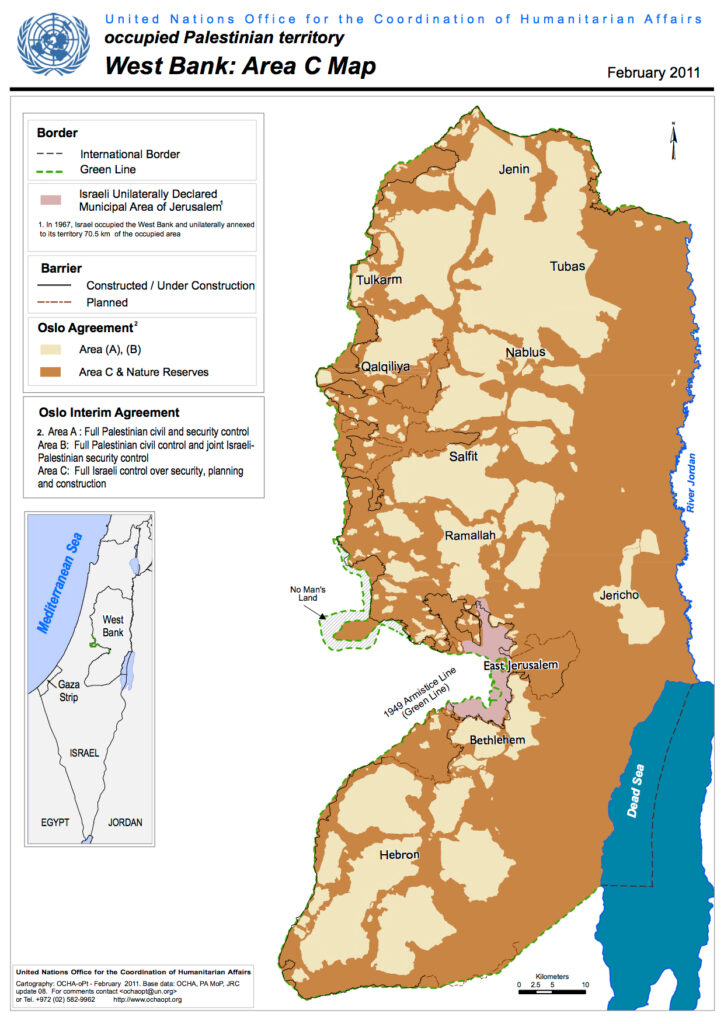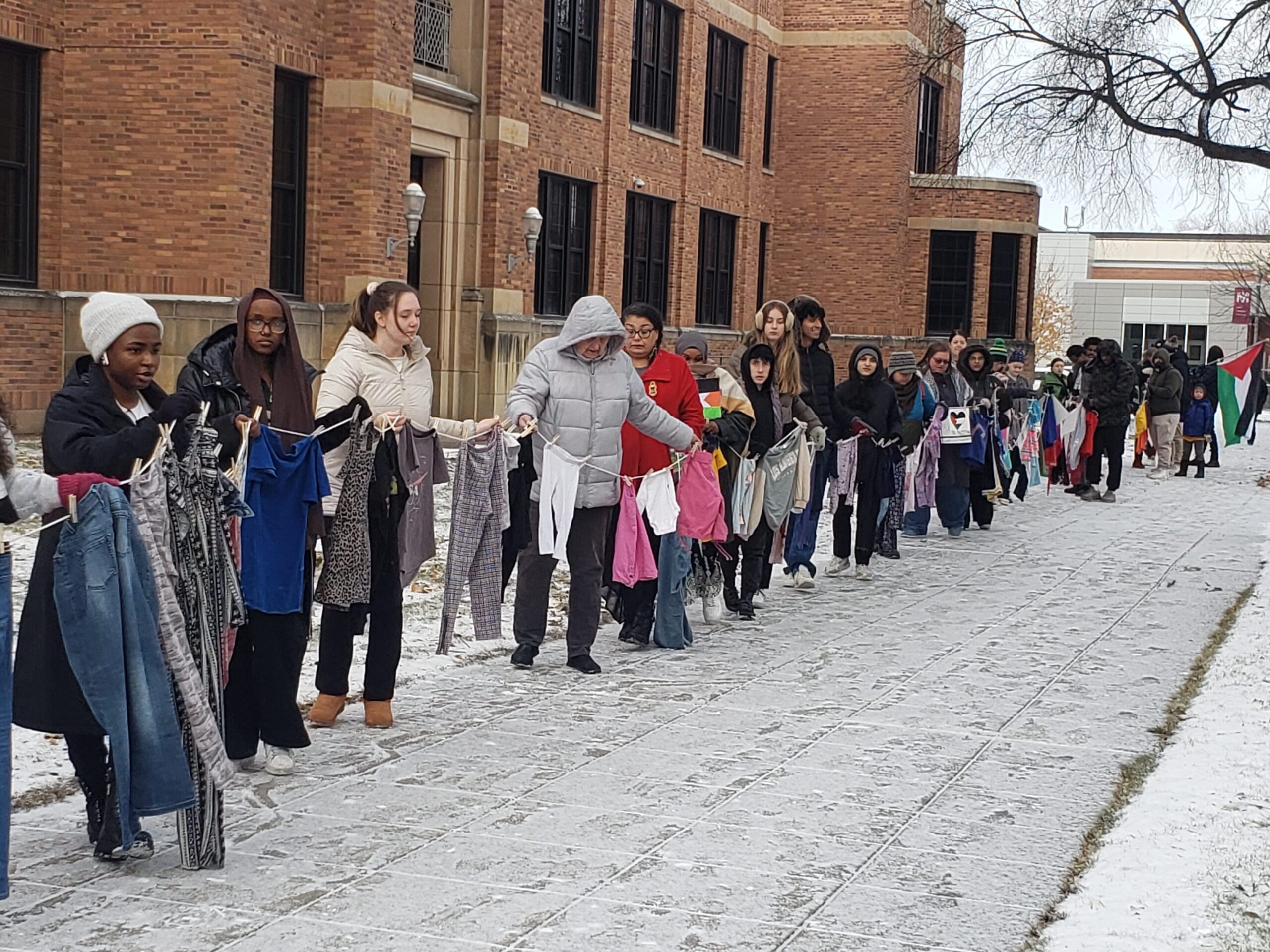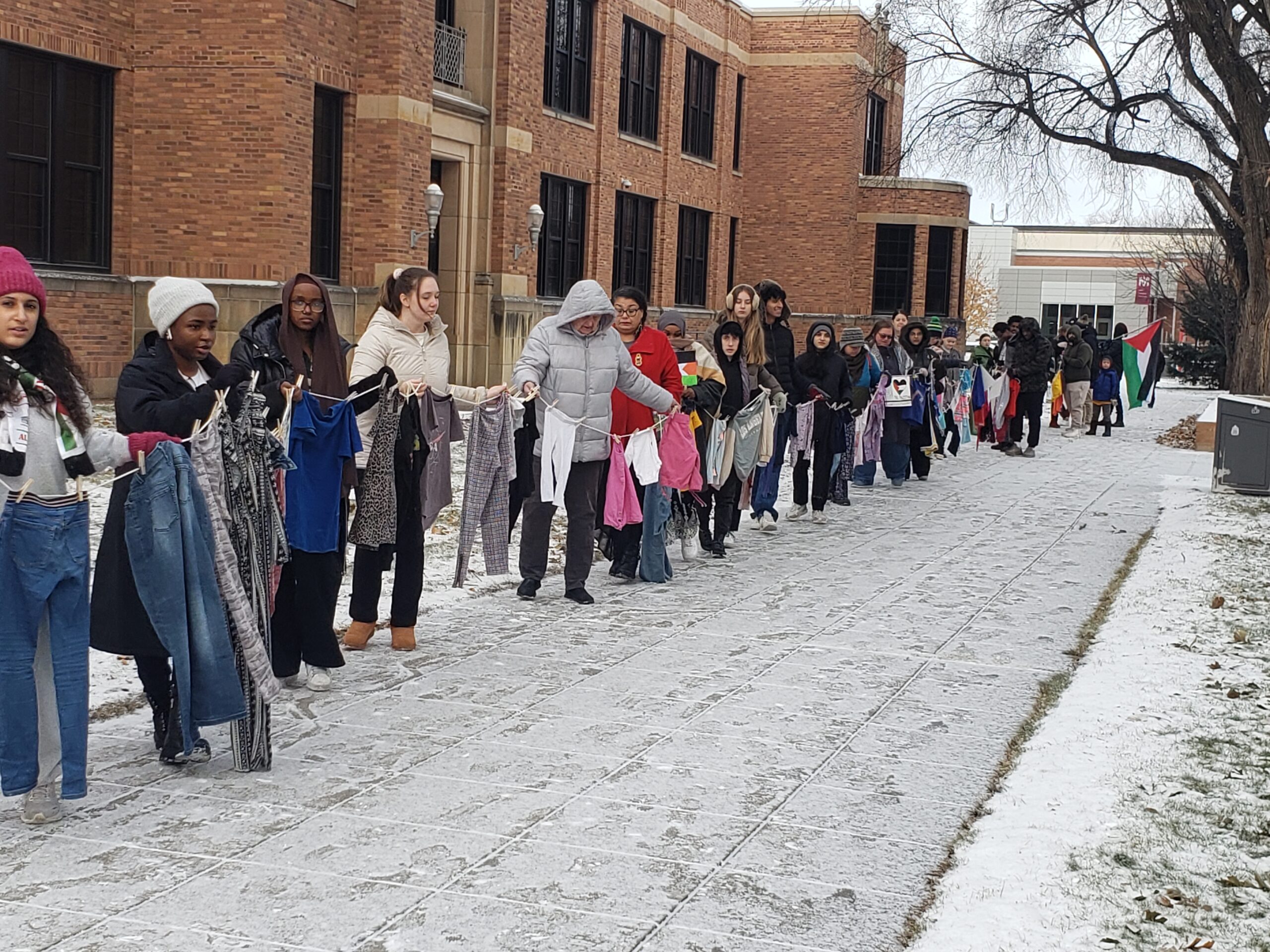Ever since Oct. 7, the escalation of violence in Gaza has dominated the conversation surrounding the greater issue of Israel and Palestine. However, Gaza is only one Palestinian territory. The West Bank is the other major Palestinian territory that sheds an interesting and often overlooked aspect.

Contrary to popular belief, the West Bank, as depicted in most maps, is not a single anonymous territory. While some parts are governed by the Palestinians, the whole area is “cantonized.” The Palestinian land consists of many separated enclaves. In total, 60% of the West Bank is directly controlled by Israel. On top of that, the Israeli security forces regularly intervene in the Palestinian sections.
“My school would get raided on a weekly basis [by Israeli security forces],” says Malik Jaffal. Jaffal, an NDSU student, grew up in Jerusalem. His school was right next to the large wall that separates the Palestinian and Israeli portions of the city. Nearby, there was a large university, which brought many young students and protests. In response, deploying of tear gas was a daily occurrence. It was thrown at students, including at times in the school.
Additionally, Jaffal shared about how Palestinians are frequently detained with no proper justification. There are “ over 7,000 Palestinian political prisoners inside Israeli prisons right now. More than 2,500 are being held under administrative detention … without a charge and without a trial,” says Tala Nasir, a lawyer with a group that advocates for Palestinian prisoners via Democracy Now.
Jaffal also mentioned what it was like traveling across the enclaves and outside of the West Bank. Israel controls and regulates who can move through the various checkpoints. It could also take hours to move through because “they open and close whenever the Israelis want,” says Jaffal. In certain circumstances, Palestinians would be denied entry from the neighboring country of Jordan, he shared.
Clashes with the Israeli forces would also regularly break out. Experience this was especially common for Jaffal, who’s house was right next to the border. Looking back before Oct. 7, the region was not free of violence. Between 2008 and Oct. 6, 2023, 1,017 Palestinians and 138 Israelis were killed in conflicts. Since Oct. 7, Israeli forces have killed at least 237 Palestinians, including 52 children.
Recently, the Israeli occupation has gone as far as banning celebrations for Palestinians over the release of prisoners in the West Bank. “My instructions are clear: there are to be no expressions of joy,” says Israel’s Minister of National Security Itamar Ben-Gvir. “Expressions of joy are equivalent to backing terrorism.”
According to the Intercept, “of the 300 names Israel proposed for potential release, 233 of them have not been convicted of any crimes.” Furthermore, of those 300, 124 were children under 18 years old, and 146 were under 18 at the time of their arrest.
Ben-Gavir has also made similar statements about the movement of Palestinians and Israelis and their legal disparity: “My right, the right of my wife and my children to move around Judea and Samaria [biblical names for the West Bank] is more important than freedom of movement for the Arabs.”
Israel has also continued its development of new settlements in the West Bank. In 2023, the approval of new settlements was at an all-time high.
These are just some of the many reasons why leading organizations like Human Rights Watch and Amnesty International have ruled Israel’s treatment of Palestinians as Apartheid. Apartheid is defined as the strict and explicit domination of one racial group over another.

When asked what it was like living under these conditions, Jaffal said, “Living through it every day, every minute, it became part of your life. Honestly, we didn’t know what life was like outside of that.” Furthermore, he is deeply frustrated that Israel is “pretty much doing the same thing in West Bank [referring to Israeli actions in Gaza], just not as severe, but there’s no Hamas there. So what’s your excuse with that?”
